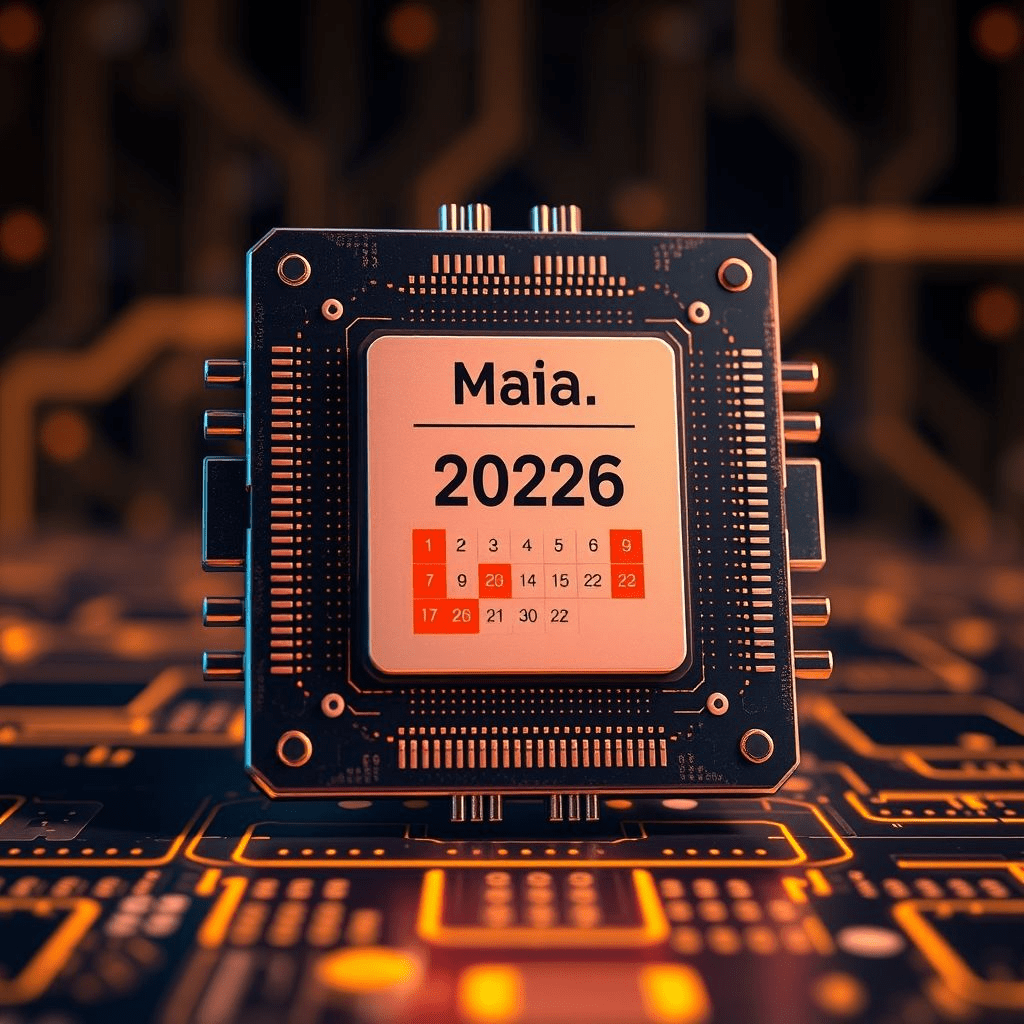Introduction
In a significant development, Microsoft announced a delay in the production of its highly anticipated Maia AI chip, initially set for release in 2025, to 2026. The Maia AI chip was designed to strengthen Microsoft’s AI capabilities, reduce reliance on Nvidia GPUs, and enhance Azure’s competitive edge in cloud computing. The delay raises questions about Microsoft’s ability to keep pace with rapidly evolving AI hardware demands.
Background: The Role of Custom AI Chips in the Cloud Market
The AI revolution has propelled companies like Microsoft, Google, and Amazon to invest heavily in proprietary chip designs. AI chips power advanced workloads such as large language models (LLMs), image recognition, and real-time analytics.
Microsoft’s Maia chip, first unveiled in late 2023 under the codename “Braga,” aimed to cut costs and boost performance by optimizing AI processing specifically for Azure’s ecosystem. Competing chips from Nvidia (Blackwell architecture), Amazon (Trainium3), and Google (TPUv7) have already set high performance and efficiency benchmarks.
What Happened: Unveiling the Delay
Microsoft revealed that unforeseen technical challenges and resource constraints necessitated pushing Maia’s production timeline to 2026. Sources cite:
- Design revisions: Adjustments needed to meet new performance targets.
- Supply chain issues: Securing high-performance silicon amid global chip shortages.
- Developer turnover: Loss of key talent in the chip design team.
The delay means that Microsoft will continue to depend on Nvidia’s GPUs, such as the H100 and upcoming Blackwell series, for AI workload acceleration in the short term.
Reactions from Industry and Analysts
The announcement has drawn varied reactions across the tech industry:
- Tech analysts:
“This delay hampers Microsoft’s ability to lower AI cloud costs and differentiate Azure from competitors like AWS and Google Cloud.” - Investors:
Concerns about long-term hardware autonomy have led to a dip in Microsoft’s stock performance since the announcement. - Competitors:
Amazon and Google are likely to capitalize on the delay to promote their own custom chips, Trainium3 and TPUv7, respectively.
Impact of the Delay
- Cloud Strategy:
The delay restricts Azure’s ability to lower operational costs. This could also slow the rollout of new AI services. - Partnerships with OpenAI and Others:
Microsoft’s collaboration with OpenAI for ChatGPT and other AI products may be affected, as these rely on cost-effective and scalable hardware solutions. - Market Positioning:
Nvidia remains the dominant player, with Microsoft now forced to negotiate for continued supply at potentially higher costs.
Expert Commentary
- Tech Hardware Expert, Daniel Reed:
“Custom AI chips are vital for companies aiming to stand out in the cloud market. This delay puts Microsoft on the back foot, especially as rivals accelerate their timelines.” - AI Strategist, Carla Lopez:
“While the delay is a setback, it could provide Microsoft more time to refine Maia’s design, ensuring it can better compete with Nvidia in the long run.”
Future Outlook: What’s Next for Maia?
Despite the delay, Microsoft remains committed to the Maia project.
- Short-term plan: Continue optimizing Nvidia GPU usage for Azure’s growing AI workloads.
- Long-term strategy:
- Iterative Maia updates to match or exceed Nvidia Blackwell’s capabilities.
- Expanded collaboration with chip manufacturers to mitigate future delays.
Microsoft’s commitment to proprietary AI hardware underscores its broader ambition to lead the AI revolution, but the stakes have never been higher.
Conclusion
The Maia AI chip delay highlights the challenges of developing cutting-edge hardware in a fiercely competitive market. While this postponement may slow Microsoft’s momentum, it also offers an opportunity to refine its chip design, ensuring a more robust entry in 2026.
The race for AI dominance continues, and the next 12 months will be pivotal in determining how Microsoft navigates this critical juncture.







